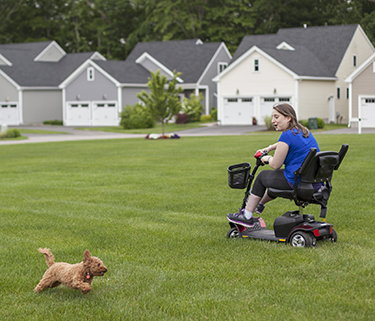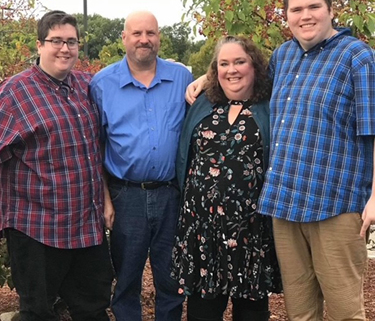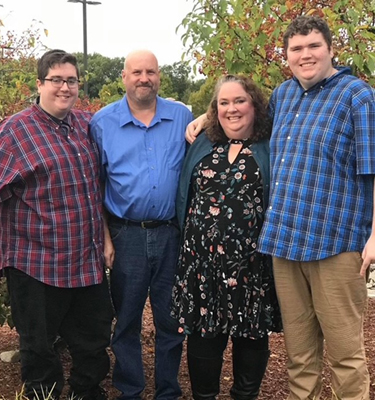Amidst Nationwide COVID-19 Surge, Health and Civil Rights Groups Secure Federal Approval of Revised Crisis Standards of Care Guidelines in Texas
Washington, D.C.: Today, amidst an unparalleled rampant spread of COVID-19 infection throughout the country and the looming specter of care rationing as hospitals become overwhelmed, civil rights groups, working closely with two Texas regional health groups and the U.S. Department of Health & Human Services, Office for Civil Rights (OCR) announced the approval of revised crisis standard of care guidelines. Disability and aging advocates—Disability Rights Texas, the Center for Public Representation, The Arc of the United States, and Justice in Aging—worked collaboratively with the North Texas Mass Critical Care Guideline Task Force (NTMCCGTF) and Southwest Texas RAC (STRAC) to ensure their guidelines comply with federal disability rights laws and do not discriminate against people with disabilities and older adults, even when public health emergencies, such as the COVID-19 pandemic, necessitate the rationing of scarce medical resources.
Texas currently has no statewide crisis standards of care policy. The revised guidelines announced today provide the foundation and models for statewide guidelines that could be adopted by the Texas Medical Association and the Texas Hospital Association. They would apply to all of the other regional advisory councils in Texas, amidst surging hospitalizations and rapidly declining ICU capacity that put the lives of people with disabilities and older adults at grave risk. Like earlier resolutions of crisis standards in Alabama, Pennsylvania, Tennessee, and Utah, the guidelines provide concrete, clinical alternatives to discriminatory provisions common in many states’ rationing plans. The following are key changes in the revised policies to avoid discrimination against people with disabilities and older adults:
- No Exclusions or Deprioritizing Based on Resource Intensity or Diagnosis: An individual can no longer be excluded from, or deprioritized for, medical treatment based on the fact that they might require more time or resources to recover or because of a person’s diagnosis or functional impairment. Rather than making assumptions about a patient’s ability to respond to treatment based solely on stereotypes, medical personnel must perform an individualized assessment of each patient based on the best objective current medical evidence.
- Resource Decisions Based Only on Short-Term Survivability: Determinations about treatment can only be based on short-term survivability. Since long-term predictions of the outcome of treatment is fraught with speculation, mistaken stereotypes, and assumptions about the quality of life and lifespan of older adults and people with disabilities, they are explicitly prohibited.
- Reasonable Modifications Required: Hospitals must make reasonable accommodations to the support needs and communication styles of persons with disabilities, and reasonable modifications to the Modified Sequential Organ Failure Assessment (MSOFA)— or other tools that may be used to prioritize access to medical treatment—to correct against the impact prior conditions may have on the assessment of organ failure scoring. Other reasonable modifications, including modifications to no-visitor policies, may also be required to provide equal access to treatment.
- Reallocation of Personal Ventilators Prohibited: Medical personnel may not reallocate the personal ventilator of a patient who uses a ventilator in their daily life to another patient whom the personnel deem more likely to benefit from the ventilator in receiving treatment.
- Blanket Do Not Resuscitate (DNR) Policies Prohibited: Hospitals must provide information on the full scope of available treatment alternatives, including the continued provision of life-sustaining treatment, and may not impose blanket DNR policies. Physicians may not require patients to complete advance directives in order to continue to receive services from the hospital.
“The lives of persons with disabilities are not disposable and we deserve medical treatment just as much as anyone else even in a pandemic,” said Laura Halvorson, a client of Disability Rights Texas with muscular dystrophy and respiratory failure. “I use a personal ventilator 24 hours per day. Recently, I was hospitalized and worried that my ventilator would be taken away from me and given to another patient. These new guidelines will prevent this from happening and make me less worried about going to the hospital.”
“COVID-19 cases are rising in Texas and nationwide at unprecedented levels and the threat of care rationing is real and already happening in some hospitals. This resolution makes major progress toward ensuring that people with disabilities have equal access to the care and tools necessary to fight COVID-19 infection,” said Peter Berns, Chief Executive Officer, The Arc. “We will keep fighting for revisions to policies that could mean the difference between life and death for people with disabilities.”
“Persons with disabilities and all persons needing hospital care in the Dallas and San Antonio regions of Texas can now be assured that their right to equal access to life-saving treatment is guaranteed. We now need to do the same for all Texans,” said Steven Schwartz, Legal Director for the Center for Public Representation.
“This collaboration between local health officials, the federal Office for Civil Rights and leading advocates is a great example of government officials listening and responding to the needs and concerns of impacted communities,” said Regan Bailey, Litigation Director at Justice in Aging. “As a result, people needing hospital care in Dallas and San Antonio will not be denied life-saving care because of guidelines that discriminate based on age or disability.”
In addition to working with OCR and other entities to revise crisis standard of care policies nationwide, The Arc, the Center for Public Representation, and Justice in Aging have created resources for stakeholders regarding preventing disability and age discrimination in crisis standards of care.
For more information about today’s resolution, contact:
Kristin Wright, The Arc of the United States
wright@thearcwebdev.wpengine.com or 202-617-3271
Regan Bailey, Justice in Aging
rbailey@justiceinaging.org or 202-683-1990
Steven Schwartz, Center for Public Representation
sschwartz@cpr-ma.org or 617-285-4666


















